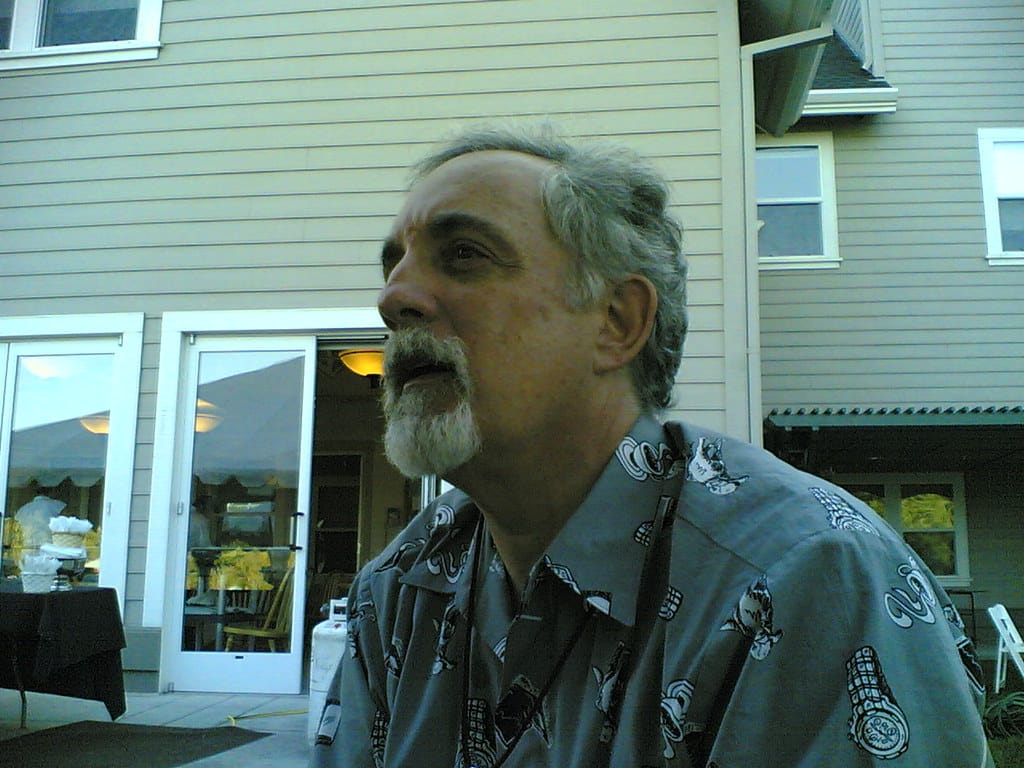At 74, the Visionary Behind Lotus 1-2-3 Finally Walks Across MIT's Stage
After 45 years, tech pioneer Mitch Kapor—who revolutionized computing with his legendary spreadsheet software and co-founded the Electronic Frontier Foundation—has earned his MIT degree, proving it's never too late to finish what you started.
Mitch Kapor's story reads like a Silicon Valley fairy tale with an unconventional twist. The man who created Lotus 1-2-3, one of the most influential software applications in computing history, and co-founded the Electronic Frontier Foundation to defend digital rights, recently achieved a milestone that had eluded him for nearly half a century: graduating from MIT.
At 74, Kapor finally received his degree from the prestigious institution, completing a journey that began in the late 1970s but was interrupted by the irresistible pull of the emerging personal computer revolution.
The Unfinished Business
Kapor first enrolled at MIT in the late 1970s, pursuing graduate studies after completing his undergraduate degree at Yale University. However, the personal computer boom of the early 1980s presented opportunities too compelling to ignore. Like many of his generation's tech visionaries, Kapor made the bold decision to leave academia behind—temporarily, he thought—to chase the future of computing.
That "temporary" departure lasted 45 years.
"I always intended to go back," Kapor reflected in recent interviews. "But life had other plans, and those plans turned out to be pretty extraordinary."
Building a Spreadsheet Empire
The decision to leave MIT proved transformative—not just for Kapor, but for the entire computing industry. In 1982, he founded Lotus Development Corporation and released Lotus 1-2-3, a spreadsheet application that became the killer app for IBM PCs.
The numbers tell the story of its impact:
- Lotus 1-2-3 dominated the spreadsheet market throughout the 1980s
- At its peak, Lotus Development Corporation employed over 4,000 people
- The software generated hundreds of millions in revenue
- It single-handedly drove IBM PC adoption in corporate America
Lotus 1-2-3 wasn't just software; it was a business revolution. Before its arrival, financial modeling and data analysis were largely manual processes. Kapor's creation democratized complex calculations, putting powerful analytical tools in the hands of millions of business users.
Beyond Spreadsheets: Digital Rights Pioneer
But Kapor's influence extended far beyond business software. In 1990, he co-founded the Electronic Frontier Foundation (EFF) with John Perry Barlow and John Gilmore, recognizing early that the digital revolution would require new frameworks for protecting civil liberties in cyberspace.
The EFF has since become the premier organization defending digital rights, fighting battles over:
- Internet privacy and surveillance
- Free speech online
- Net neutrality
- Government censorship
- Digital copyright issues
Kapor's vision of a free and open internet helped shape the digital landscape we navigate today.
The Long Road Back to Academia
So what brought the tech legend back to MIT after all these years? According to Kapor, it was a combination of personal fulfillment and unfinished business.
"There was always this nagging feeling that I had left something incomplete," he explained. "As I entered my seventies, I realized that if I was going to do it, it had to be now."
The path back wasn't easy. Academic requirements had evolved significantly since the 1970s, and Kapor had to adapt to new methodologies and technologies—ironic for someone who had spent decades at the forefront of technological innovation.
Lessons from a Lifetime of Innovation
Kapor's belated graduation offers several profound takeaways for entrepreneurs, students, and anyone pursuing long-term goals:
Timing isn't everything: While conventional wisdom suggests following a linear educational and career path, Kapor's story demonstrates that sometimes the "wrong" decision at the "wrong" time can lead to extraordinary outcomes.
It's never too late: At 74, Kapor proves that personal goals don't have expiration dates. His return to MIT challenges ageist assumptions about learning and achievement.
Multiple definitions of success: Having already achieved legendary status in tech, Kapor's pursuit of his degree wasn't about career advancement—it was about personal completion and intellectual satisfaction.
The Final Chapter?
As Mitch Kapor walked across MIT's graduation stage, he embodied a unique intersection of technological innovation, social activism, and lifelong learning. His journey from dropout to spreadsheet revolutionary to digital rights pioneer to MIT graduate illustrates that the most interesting lives rarely follow straight lines.
For a man who spent decades shaping the digital future, finally earning his MIT degree represents not an ending, but perhaps another beginning. After all, at 74, Mitch Kapor has already proven that it's never too late to rewrite your own story.
